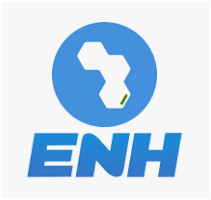

Empresa Nacional de Hidrocarbonetos - ENH
ENH – Empresa Nacional de Hidrocarbonetos: Mozambique's Energy Powerhouse
Empresa Nacional de Hidrocarbonetos (ENH) is the state-owned oil and gas company of Mozambique and a cornerstone of the country's natural resource economy. Established in 1981 under the Ministry of Mineral Resources and Energy, ENH manages the state's participation in the oil and gas sector—from exploration to production, transportation, and commercialization.
With Mozambique emerging as one of the world's most promising liquefied natural gas (LNG) frontiers, ENH is at the heart of efforts to transform vast natural gas reserves into sustainable economic growth.
Ownership and Structure
-
Founded: 1981
-
Ownership: 100% owned by the Government of Mozambique
-
Share Capital: 749 million meticais (≈ USD 11.8 million)
-
Employees: 200+ (varies by source)
-
Headquarters: Maputo, Mozambique
ENH is the government's commercial arm in hydrocarbons. It holds stakes ranging from 10% to 30% in 11 exploration and production concessions and works alongside global energy giants such as TotalEnergies, ExxonMobil, and Eni.
Financial Performance
ENH's financial results closely follow global energy trends and the progress of Mozambique's LNG projects.
-
Profits
-
2023: 3.5 billion meticais (≈ USD 55M), a sevenfold increase from 2022, boosted by natural gas sales.
-
2024: 1.7 billion meticais (≈ USD 26.7M), halved from the previous year due to weaker sales and rising costs.
-
-
Revenue
-
2023: 1.6 billion meticais (≈ USD 25.1M) from gas sales, nearly double 2022 levels.
-
2022: 960.2 million meticais (≈ USD 15.1M).
-
-
Assets: 28.7 billion meticais (≈ USD 452M) by end of 2024.
-
Liabilities: 8.9 billion meticais (≈ USD 140M).
-
Dividends to State:
-
1.2 billion meticais (≈ USD 18.9M) in 2024.
-
877.6 million meticais (≈ USD 13.8M) in 2023.
-
Despite volatility, ENH remains a significant contributor to Mozambique's fiscal revenues.
Operational Scope
ENH is engaged across the hydrocarbon value chain:
-
Upstream: Participates in exploration and production through stakes in the Rovuma Basin projects.
-
Midstream: Develops pipelines and LNG infrastructure to process and transport gas.
-
Downstream: Promotes domestic use of gas for power generation, industries, and households.
Key Projects:
-
Mozambique LNG (Area 1): Operated by TotalEnergies, designed for up to 43 mtpa. ENH holds a 15% stake.
-
Rovuma LNG (Area 4): Operated by ExxonMobil and Eni, with capacity of 18 mtpa. ENH holds a 10% stake.
-
Coral Sul FLNG: Operated by Eni, began production in 2022 as Mozambique's first offshore LNG project.
These projects, located in Cabo Delgado's Rovuma Basin, are among the largest natural gas developments in the world.
Historical Performance
ENH has not always been profitable:
-
2021: Net loss of 153.1 million meticais (≈ USD 2.4M).
-
2020: Net losses, highlighting the financial challenges before gas revenues began to scale.
The turnaround in 2022–2023 underscores the transformational impact of LNG on the company's performance.
Economic and Regional Impact
ENH's importance extends far beyond its balance sheet:
-
Economic Contribution: Provides significant dividends to the state and revenue from exports.
-
Energy Security: Supports domestic energy initiatives, promoting industrial use of natural gas.
-
Regional Role: Enhances Mozambique's position as an emerging African energy hub, exporting gas to global markets.
-
Job Creation: Develops local talent and expertise in the oil and gas sector.
Recent Developments (2025)
-
Profit Decline: 2024 profits fell to 1.7 billion meticais, down from 2023's record highs.
-
World-Class Projects: LNG developments continue despite delays and security challenges in Cabo Delgado.
-
Strategic Outlook: ENH remains focused on LNG exports while also encouraging greater domestic gas utilization.
-
Challenges: Ongoing insurgency in northern Mozambique and global market volatility remain risks to operations.